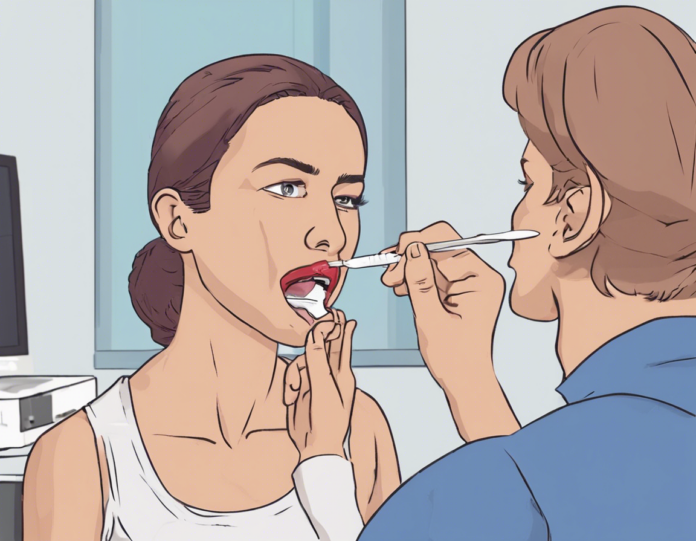Passing a Mouth Swab Test: Tips and Tricks
Whether you need to take a mouth swab test for a new job, as part of a routine drug test, or for any other reason, knowing how to pass it can be crucial. Mouth swab tests, also known as oral fluid tests, are becoming increasingly popular due to their convenience and non-invasive nature. However, they can detect recent drug use more effectively than some other types of tests, making them a cause for concern for many individuals.
This comprehensive guide will provide you with tips and tricks to help you pass a mouth swab test successfully. From understanding how these tests work to learning about potential ways to increase your chances of passing, this article aims to equip you with the knowledge you need to navigate a mouth swab test with confidence.
How Does a Mouth Swab Test Work?
Before diving into strategies to pass a mouth swab test, it’s essential to understand how these tests work. When you take a mouth swab test, a small swab resembling a Q-tip is used to collect a sample of saliva from inside your mouth. This sample is then analyzed for the presence of various substances, such as drugs or alcohol.
Mouth swab tests are designed to detect recent drug use, typically within the past 24 to 72 hours, depending on the substance being tested for. Unlike urine or hair tests, which can detect drug use over a more extended period, oral fluid tests provide a more immediate snapshot of an individual’s recent drug use. This is partly what makes them a popular choice for many testing scenarios.
Factors That Can Influence Test Results
Several factors can influence the accuracy of a mouth swab test and whether you are likely to pass or fail. Understanding these factors can help you take steps to improve your chances of passing the test. Some key factors to consider include:
-
Type of Substance: Different substances can be detected in oral fluid for varying lengths of time. For example, cannabis can typically be detected in saliva for up to 24 hours, while other drugs like methamphetamine or cocaine may be detectable for a shorter period.
-
Frequency of Use: The more frequently you use a drug, the longer it is likely to be detectable in your saliva. Occasional users may metabolize substances more quickly than chronic users, affecting detection windows.
-
Metabolism and Body Weight: Metabolism plays a role in how quickly a substance is cleared from your system. Individuals with faster metabolisms may eliminate drugs more rapidly than those with slower metabolisms. Body weight can also impact drug detection times.
-
Mouth Hygiene: Keeping your mouth clean and healthy can potentially influence the results of a mouth swab test. Poor oral hygiene may allow substances to linger in your saliva for longer periods.
Tips for Passing a Mouth Swab Test
If you are facing a mouth swab test and need to increase your chances of passing, there are several strategies and tips you can try. While some methods may offer only temporary solutions, they can be helpful in specific situations. It is essential to approach these tips with caution and consider their potential risks and benefits. Here are some tips to help you pass a mouth swab test:
1. Stop Using Drugs
One of the most effective ways to ensure you pass a mouth swab test is to abstain from using any drugs or substances leading up to the test. Since oral fluid tests are designed to detect recent drug use, refraining from using drugs for a few days before the test can significantly increase your chances of passing.
2. Maintain Good Oral Hygiene
Practicing good oral hygiene, such as brushing your teeth regularly, using mouthwash, and staying hydrated, can help reduce the presence of drugs or substances in your saliva. Cleaning your mouth thoroughly can remove any traces of substances that may be detected during the test.
3. Use a Mouthwash
Specialized detox mouthwashes are available that claim to help individuals pass a mouth swab test by temporarily reducing the presence of drugs in saliva. These mouthwashes typically need to be used shortly before the test and may offer a short window of decreased detection.
4. Avoid Certain Foods and Drinks
Some substances, such as acidic or sugary foods, can potentially impact the results of a mouth swab test. Avoiding these types of foods and drinks leading up to the test may help ensure a more accurate result.
5. Rinse Your Mouth
If you are unable to brush your teeth before the test, rinsing your mouth with water thoroughly can help remove any lingering traces of substances. Swishing water around your mouth and then spitting it out several times can help dilute your saliva temporarily.
6. Be Mindful of Test Timing
Since mouth swab tests are designed to detect recent drug use, the timing of the test can influence the results. If possible, try to schedule the test at a time when any substances are least likely to be detectable in your saliva.
7. Consider Using Home Remedies
Some individuals may explore home remedies or natural methods to help pass a mouth swab test. While the efficacy of these remedies is often anecdotal, some people claim that chewing gum, eating high-fat foods, or drinking vinegar can help mask the presence of drugs in saliva.
FAQs (Frequently Asked Questions)
1. How long can drugs be detected in a mouth swab test?
The detection window for drugs in a mouth swab test can vary depending on the substance, but most tests can detect recent drug use within the past 24 to 72 hours.
2. Can a mouth swab test detect alcohol use?
Yes, mouth swab tests can detect alcohol use, along with various drugs. The detection window for alcohol in saliva is typically shorter than for some other substances.
3. Are mouth swab tests accurate?
Mouth swab tests are generally considered accurate for detecting recent drug use. However, factors like improper sample collection or contamination can potentially affect test results.
4. Can secondhand smoke influence a mouth swab test result?
While unlikely, exposure to secondhand smoke, especially in confined spaces, can potentially lead to trace amounts of substances being detected in a mouth swab test. However, these amounts are usually minimal and may not result in a positive test.
5. Can you refuse to take a mouth swab test?
In most cases, refusing to take a mouth swab test can have consequences, depending on the situation. It is important to understand the policies and regulations regarding drug testing in your specific circumstances.
Conclusion
Passing a mouth swab test can be a straightforward process with the right knowledge and preparation. By understanding how these tests work, implementing strategies to increase your chances of passing, and considering various factors that can influence test results, you can navigate a mouth swab test confidently. Remember to approach any tips or methods with caution and prioritize your health and well-being throughout the testing process.












